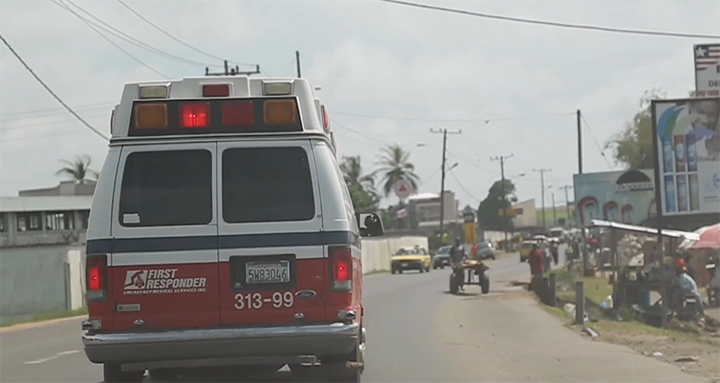
A heartbreaking video on the New York Times' website shows us just how powerful the Ebola epidemic has become in Liberia as a documentary crew follows an ambulance driver around the African country during a typical 15-hour shift.
The 7-and-a-half-minute video is shot in Monrovia, Liberia's capital city, and gives some insight into what ambulance nurse Gordon Kamara faces in the Ebola-torn country.
With only 15 ambulances serving a city of 1.5 million people, you can guess that the job is both challenging and thankless. The team that Kamara works with is funded by an opposition member of Parliament, Saah H. Joseph, who pays for everything with his government salary. He imported two ambulances from the United States this year, and Kamara's vehicle -- still adorned with California license plates -- was donated by the United States.
But the main problem portrayed in this documentary is that of inadequate facilities overall. Liberia's crumbling health care system was not prepared for a viral outbreak of this magnitude, and health care workers are regularly turning away patients in overcrowded hospitals.
Hundreds of new Ebola cases are reported each week in Monrovia alone, but many believe that a recent slow-down in reports is due to family members choosing to deal with the deadly disease on their own, instead of risking the trek to the overcrowded hospitals, only to be turned away.
Kamara's ambulance team has been helping with that at the rate of around 15-30 patients a day, seven days a week. They often work from well before sunrise to long past sunset and sleep in the ambulance.
"When there are beds at the centers, we can do our work," Mr. Kamara said. "When there aren't, we must sit and wait." He described a common situation where the vehicle would sit idle with a sick patient in the back and wait outside of hospitals until a bed was available.
This point hit home at the end of the video when the ambulance team had to take a 17-year-old girl back to her home because they were turned away at a clinic. The girl died the next morning.














